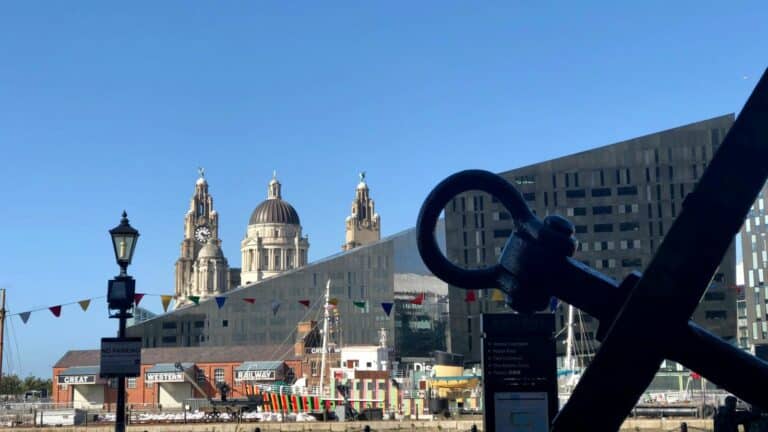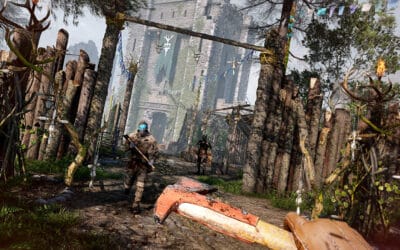Despite the games industry adding around £3.6bn to UK GDP, gaming leaders across the Liverpool City Region are now urging for more support and political backing to help level up the sector.
So, with the general election campaign now in full swing, will the incumbent government and regional leaders start to take note? That’s certainly the hope of games companies based across the Liverpool City Region.
Whilst there are plenty of opportunities in Liverpool with a pool of veteran talent, rich creative heritage and collaborations for talent, there are plenty of hurdles and frustrations bubbling beneath the surface too.
“I don’t think there’s any faster growing industry in the country. And yet, there’s still not the right amount of attention given to it from the politicians,” Craig Pearn, director of talent acquisition at Wushu Studios, tells Prolific North.
In the final piece of our three-part series – read piece one and two here – looking into Liverpool’s games sector, we’re lifting the rose-tinted glasses and addressing some of these challenges with leaders across the region and find out what could help boost the region’s £220m games sector even further in future.
“The council just want to make it more difficult at every possibility”
Liverpool’s Baltic Triangle is home to a number of games companies including Lucid Games, Skyhook Games, Wushu Studios and up until recently, Ripstone, which has since relocated to Liverpool’s Knowledge Quarter.
Despite the growth of this thriving inner city creative and digital district over the years, public transport and accessibility remain two major frustrations.
“There’s still no train that comes to the Baltic. There’s the odd bus now and again. So if there’s no parking, no buses, no trains, what do they think is gonna happen?” asks Leo Cubbin, co-founder of Ripstone.
“Go to MediaCity in Manchester, it’s amazing with a direct tram. If you’re investing from the outside, you’d see Manchester is really keen to support media businesses. I’m not sure what Liverpool wants?”
Since our chat, there’s been some movement on the train front. Recently re-elected Liverpool City Region Mayor, Steve Rotheram, recently announced plans for a £100m Liverpool Baltic station scheme, with expected work to begin on site in 2025 subject to approval with public consultations underway.

But look to Runcorn, where co-development studio d3t is based, and it feels like the area is majorly underserved. It’s only accessible by car, isn’t close to any train stations, and the only local bus service to the studio was recently axed.
Transport is the “biggest issue” that constantly comes up at the Liverpool City Region Games Board meetings, explains Phil Owen, head of engineering at d3t.
“The combined authority supports us when it comes to the investment of new companies or expansion. Whilst it’s not so bad in the Baltic, the transport links are bad here in Runcorn.”
“We used to have a really good bus service here. It was cut, so people can’t get here anywhere near as easily as they did pre-Covid. That’s really bad for us,” adds Louise Andrew, head of art at d3t.
“If I was to ask for one thing from the local government, national government or facilitators, it would be to get the buses and trains sorted. If we want to employ graduates and tap into the new generation of game developers, they can’t get here unless they can drive.”
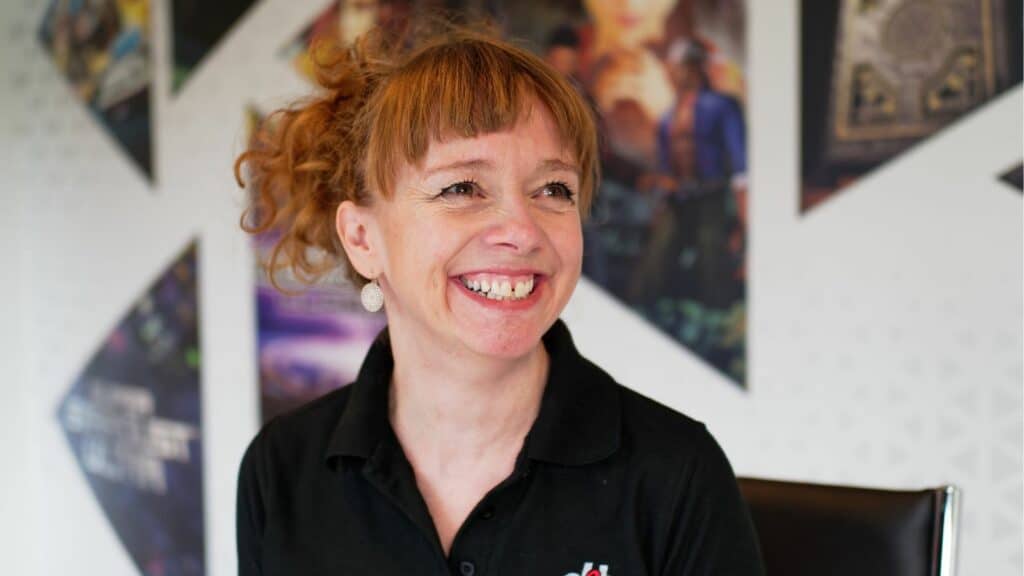
Without accessibility, she says d3t is “vaguely considering setting up another studio” – potentially elsewhere in the city.
For location manager Alison Lacy, for Avalanche Studios Group to be able to “continue to grow” the company would “love to see public transport improve and achieve what Manchester is trying to do, by having a joined up approach” and make it simpler for staff to buy transport passes.
“There are different bus companies, we want to be able to support them with travel passes but it’s not easy to do,” she says. “This is something that could make a big impact, not just for our industry, but for everyone.”
Overcrowded inner city areas are posing problems for both business space and parking too, says Phil Gaskell, co-founder of Ripstone.
“The Baltic Triangle is starting to get overburdened with flats and apartments. There’s less space for businesses, inevitably, that affects parking.”
With a recent clamp down from the city council on parking permits for businesses, employees now need their own individual passes. It has fast become another hurdle for Ripstone as a games company in the city centre.
“The council has just changed the parking permits. It’s almost designed to stop you from parking and coming into work. It’s a really weird change.”
Yet fellow co-founder Leo Cubbin and Ripstone’s finance director, Amy Wall, both believe the infrastructure in the Baltic Triangle is “great for space” and the council has been “very willing” to point companies in the right direction.
“There is definitely space,” says Cubbin. “When we decided we were outgrowing our offices and went to look for a new place, there’s loads of available space for games companies.”
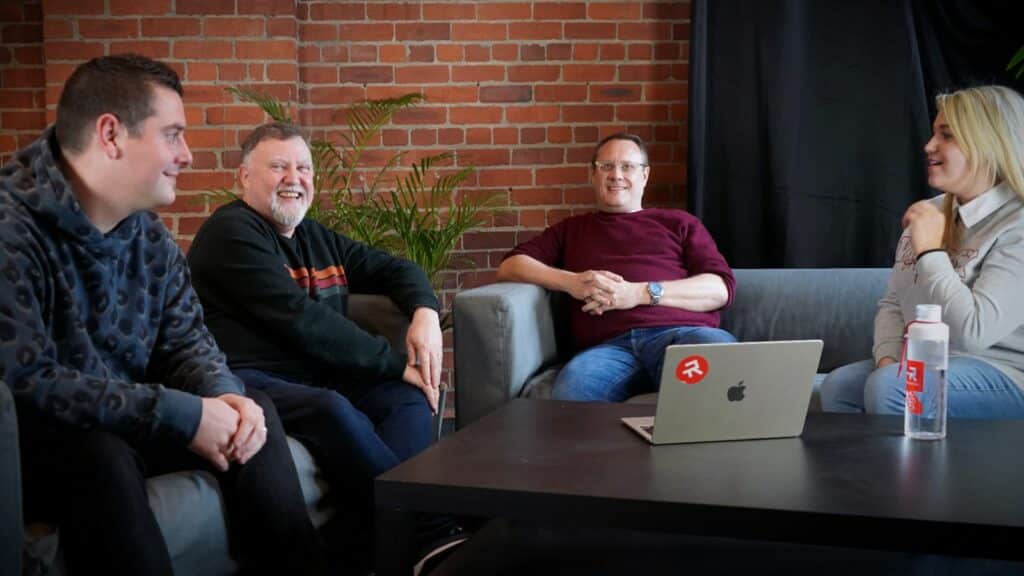
But Alison Lacy, location manager at Avalanche Studios Group, disagrees. Since setting up a Liverpool studio in 2020, Avalanche has moved from Atlantic Pavilion at Royal Albert Dock to Forma’s No5 St Paul’s Square earlier this year.
“We have the Baltic, which is a real hub for indie and some of the bigger studios there. But when I was out looking, there was not a huge amount to choose from for a city and I think there’s a general lack of good quality space and not enough space for us to grow.”
But there is support available to help games companies looking for alternative office locations, explains Helen Cross, digital and creative sector lead at Liverpool City Region Growth Company.
“I’ll be surprised if there wasn’t enough space for most of the businesses that we’ve got here, it depends what their needs are. We have a database and we’re happy to help with that. There might slightly be a perception that there’s not enough space but it might be that they need to compromise.”
“It doesn’t feel like the UK, as a whole, is a good place to invest at the moment”
According to TIGA, the trade association representing the UK video games industry, the video games sector makes a key contribution to the UK economy by employing over 25,000 ‘highly skilled people’ in over 1,800 studios.
But Brexit has posed a stumbling block for games companies across the Liverpool City Region, especially when it comes to attracting talent and investment.
“We set up at a time when there was a lot of European funding being pushed through Liverpool. With Brexit, it doesn’t feel like the UK, as a whole, is a good place to invest at the moment. It’s probably affecting a lot of companies,” says Phil Gaskell, co-founder of Ripstone.
Clemens Wangerin, founder of Digital Advisors, agrees: “Since Brexit, there is a much smaller pool of talent that everybody’s fighting over. I think we’re really starting to see the fallout from Covid and that’s now starting to become really noticeable, as everybody wants people that can hit the ground running.”

From sponsoring overseas students to making it easier for the combined authority to deploy an apprenticeship levy, “a lot more could be done”.
“Brexit has made the pond so small for talent. It’s all well and good to say British jobs for British workers but, ultimately, businesses need to train that workforce and time is needed for that whether it’s in the education sector or through apprenticeships.”
As part of TIGA’s recently published 10-point 2024 Manifesto in April, the trade association outlined proposals that it believes will boost the sector and support economic growth across the country – including a new independent games tax credit.
“Just look over the water at Ireland. Their tax breaks are way better than what they are here, Canada’s tax breaks are way better than what they are here, so a lot of studios set up there because they know it will be more profitable for creating IP,” agrees Craig Pearn, director of talent acquisition at Wushu Studios.
There’s still a reluctance from politicians to take the games sector seriously, despite how much GDP it generates. But the government is “well aware of how profitable the games industry is”, argues Pearn.

For Wangerin, he says he “always jokes” that a gamer is needed in 10 Downing Street or a Metro Mayor that’s a gamer to truly level up the sector.
“You would have somebody who gets it and thinks more intuitively. I’m not sure the next government’s mindset will change that much. At the moment we just seem to be lagging.”
So does the region need a figurehead to champion what’s happening in the games sector here and bang the drum louder to spread that message nationally?
“In the old days before the quangos disbanded, we felt we had some representatives, they really wanted us to succeed in this sector. Since then, I don’t feel like we have any government or local area representative,” says Phil Gaskell, co-founder of Ripstone.
“If we had a voice from Liverpool trying to fight for that, that could be really helpful,” adds Wushu’s Craig Pearn.
Over at Lucid Games, co-founder Nick Davies points to other games hubs across the UK that have “enigmatic studio heads to garner attention”.
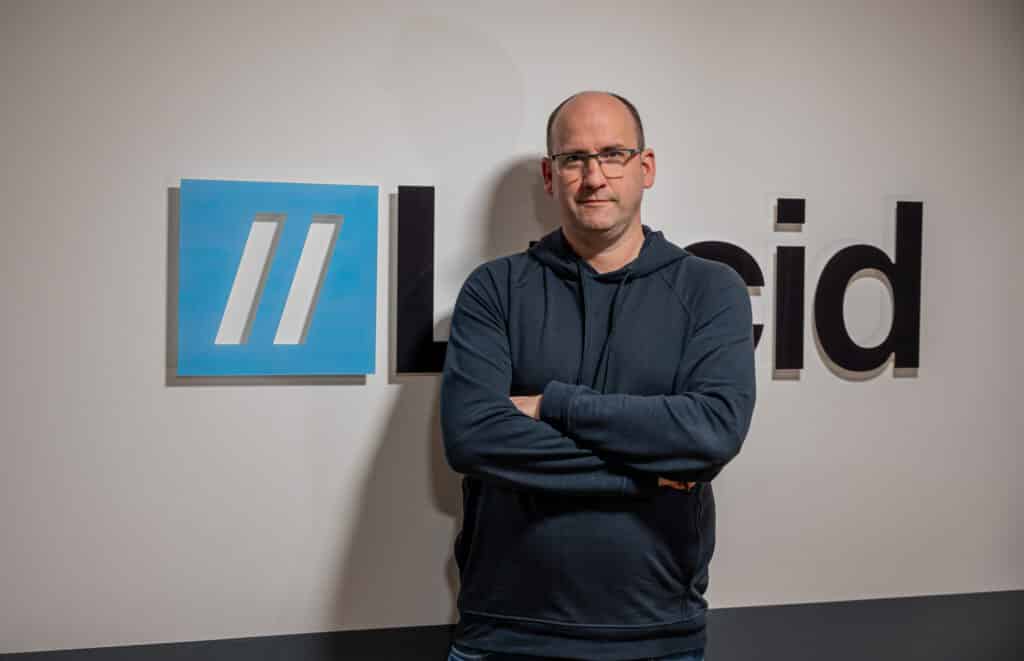
“I wonder whether we’re a bit too conservative in Liverpool sometimes. We don’t always blow our own trumpet. We haven’t always had a big creative figurehead who’s really been shouting about the last 10-15 years.”
At a regional level, Alison Lacy at Avalanche says she’s “really grateful” the Liverpool City Region Combined Authority has focused on games as a sector of growth.

“I know that’s not the case in other authority areas. I’ve spoken to friends and colleagues in other companies in places like Manchester and they don’t have that spotlight or support.
“I would like to see more connections with the creative sectors as well. The game sector is a small workforce for the terms of the GVA that we produce as an industry. It makes it hard for the government to support because they look at the volume of people.
“With so many people working across the wider creative industries here, my experience so far is that we don’t do a lot together. I would love to see us be supported in doing more things together.”
As both head of marketing at Ripstone plus chair of the LCR Games Board and Gamechangers, Jamie Brayshaw agrees that a central figurehead “more strategically connected to government” is needed to have an impact.
“There needs to be initiatives from the combined authority to engage with us on a more regular basis and appoint people with a sole focus on helping to protect and grow the games industry in Liverpool and consult with us over what we think are sensible, sustainable investments over a period of time,” adds Phil Gaskell.
“I thought it was the beginnings of a rebirth in the region… but it never happened”
With parallels between Liverpool’s film and TV industry with the region’s games sector, Ripstone’s Phil Gaskell believes there’s an untapped opportunity for the two industries to work together.
“I do think there’s a massive crossover between what we do and what the film industry requires,” he explains. “I was always hopeful when the film studios were being built in the former Littlewoods building.”
Prior to a blaze destroying a large section of the Littlewoods Pool building in 2018, Gaskell thought it would have been a “wonderful space” to relocate Ripstone at the time.
“It might have been a pipe dream at the time to be positioned as a game maker inside of a film setup, where there’s a lot of transferable skills. But then the fire came along. For years it’s just faltered, there’s been nothing. I thought it was the real beginnings of a rebirth of the region…but it never really happened.”
Now dubbed ‘Hollywood of the North’, regeneration works on the Littlewoods building have recently ramped up after Capital & Centric took over following the fire.
With the Liverpool Film Office facilitating filming throughout the Liverpool City Region, the games sector could “benefit” from a games office being set up too, says Ripstone’s Leo Cubbin.
“At the moment, it’s been left up to individuals to take it upon themselves.” With further investment, Helen Cross agrees a games office and a dedicated games hub manager would help support the sector’s growth.

“There needs to be someone who’s working full time in that sector because although there are only 50 studios, there are lots of issues for those businesses from talent, investment, raising their profile. There’s lots of things that could be done if there were more resources to do it.”
Another proposal under TIGA’s 10-point manifesto includes a new National Games Accelerator being established to support early-stage companies.
With tech accelerators like Baltic Ventures based in the region, there’s an opportunity for a dedicated games accelerator or incubator to be set up too.
“That’s missing right now and it would definitely make a huge impact if an incubator was set up to help graduates coming out of universities or for start-ups,” says Alison Lacy at Avalanche.
“If I was starting up a studio today, and I wanted to do it in Liverpool, what would I do? How would I do it and what should I do to be successful? There’s a gap in this market.”
Having an incubator would help create a pathway and “bridge the gap” for people to stay in Liverpool and continue prototyping, adds Craig Pearn at Wushu Studios.
“We have clusters here but having a sense of cohesion here would elevate the sector and level it up. How do we leverage those skills? Something like Baltic Ventures would help foster that across the city region,” explains Clemens Wangerin.
Ultimately, the onus is on the games industry to “work a bit better together”, says Jamie Brayshaw at Ripstone.
“We’ve got the expertise, the passion, the relevant insights and ability to activate at our level inside the studios in Liverpool. If somebody could link that to government policy or budget or financial support, that would really make an impact.
“Once we create those links, I think over the next few years as they emerge and become a bit clearer, we should see some big wins in the long-term for our industry.”



